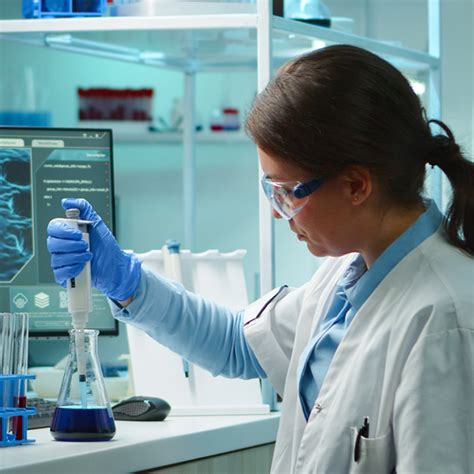The medical field is one of the most respected and in-demand industries today, with various careers that cater to different skills and interests. One of the crucial roles in the medical field is that of a Medical Laboratory Technician (MLT), also known as a Medical Laboratory Assistant (MLA) or Clinical Laboratory Technician. In this article, we will delve into the world of Medical Laboratory Technicians, exploring their responsibilities, required skills, educational paths, and career prospects.
What is a Medical Laboratory Technician?
A Medical Laboratory Technician, or MLT, is a healthcare professional responsible for collecting and analyzing body fluids, tissues, and cells to aid in the diagnosis and treatment of diseases. MLTs work closely with medical professionals, such as doctors and nurses, to provide accurate and reliable test results that help in patient care. They are essential members of the healthcare team, working behind the scenes to ensure that patients receive the best possible care.
Responsibilities of a Medical Laboratory Technician
The primary responsibilities of a Medical Laboratory Technician include:
- Collecting and processing patient samples, such as blood, urine, and tissue
- Conducting laboratory tests and analyses on patient samples
- Operating and maintaining laboratory equipment, such as microscopes and centrifuges
- Recording and reporting test results accurately and efficiently
- Maintaining laboratory quality control and safety standards
- Collaborating with medical professionals to interpret test results and develop patient care plans
Skills and Qualities Required to be a Medical Laboratory Technician
To be a successful Medical Laboratory Technician, you should possess the following skills and qualities:
- Strong analytical and problem-solving skills
- Attention to detail and accuracy
- Good communication and interpersonal skills
- Ability to work well under pressure and meet deadlines
- Basic knowledge of laboratory techniques and procedures
- Familiarity with laboratory equipment and instrumentation
- Ability to maintain confidentiality and handle sensitive patient information
Education and Training Requirements
To become a Medical Laboratory Technician, you typically need to complete a post-secondary education program in medical laboratory technology. These programs are usually offered at community colleges, vocational schools, or universities and can lead to a certificate, diploma, or associate's degree. The program should be accredited by the National Accrediting Agency for Clinical Laboratory Sciences (NAACLS) or the Accrediting Bureau of Health Education Schools (ABHES).
The curriculum for a Medical Laboratory Technician program typically includes courses in:
- Laboratory techniques and procedures
- Clinical chemistry and hematology
- Microbiology and parasitology
- Immunology and serology
- Molecular diagnostics and genetics
- Laboratory management and safety
Certification and Licensure
While certification is not always required, it is highly recommended for Medical Laboratory Technicians. The American Society for Clinical Pathology (ASCP) offers several certifications for MLTs, including the Medical Laboratory Technician (MLT) certification and the Medical Laboratory Assistant (MLA) certification. These certifications demonstrate your expertise and commitment to the profession.
In some states, licensure is required to practice as a Medical Laboratory Technician. Requirements for licensure vary by state, so it's essential to check with your state's licensing authority for specific requirements.
Career Prospects and Salary
The demand for Medical Laboratory Technicians is high, and job prospects are excellent. According to the Bureau of Labor Statistics (BLS), employment of medical laboratory technologists and technicians is projected to grow 11% from 2020 to 2030, faster than the average for all occupations.
The median annual salary for Medical Laboratory Technicians is around $52,000, according to the BLS. However, salaries can vary depending on factors such as location, employer, level of experience, and certification.
Gallery of Medical Laboratory Technician





Frequently Asked Questions
What is the role of a Medical Laboratory Technician?
+A Medical Laboratory Technician is a healthcare professional responsible for collecting and analyzing body fluids, tissues, and cells to aid in the diagnosis and treatment of diseases.
What are the education requirements for a Medical Laboratory Technician?
+To become a Medical Laboratory Technician, you typically need to complete a post-secondary education program in medical laboratory technology that is accredited by the National Accrediting Agency for Clinical Laboratory Sciences (NAACLS) or the Accrediting Bureau of Health Education Schools (ABHES).
Is certification required for Medical Laboratory Technicians?
+While certification is not always required, it is highly recommended for Medical Laboratory Technicians. The American Society for Clinical Pathology (ASCP) offers several certifications for MLTs, including the Medical Laboratory Technician (MLT) certification and the Medical Laboratory Assistant (MLA) certification.
In conclusion, a career as a Medical Laboratory Technician can be a rewarding and challenging profession for those who are passionate about healthcare and laboratory science. With the right education, training, and certification, you can embark on a successful career as a Medical Laboratory Technician and contribute to the diagnosis and treatment of diseases.
